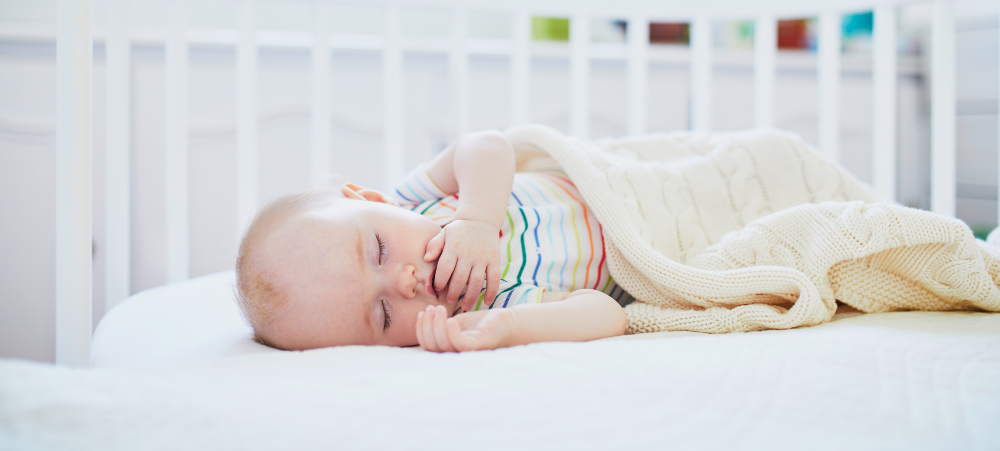Parenting is fraught with tough, controversial decisions. What makes the decisions tough is that there are such varied opinions and every ‘expert’, mum and family member seems to have a very firm opinion on how you should raise your baby. Without question, one of the most highly charged discussions revolves around co-sleeping. Should you? Should you? These are questions you will be asking yourself.
The benefits of co-sleeping
- There is evidence that babies who co-sleep breastfeed for longer than babies who don’t. This is probably due to the fact that these babies have more free access to their mum’s breast for night feeds.
- Sleep researcher, James McKenna believes that babies who co-sleep have better immunity, possibly due to the benefits from breastfeeding.
- Of course there is above all the convenience of sleeping with your small baby. Instead of getting up to check on your little one or to feed her, you can simply roll over to check on or feed her.
- Some research indicates that children who share sleep spaces with their parents experience emotional benefits such as security, emotional stability and are in the long run more likely to be well-adjusted.
The risks of co-sleeping
In recent years, co-sleeping has become recognised as a risk factor for cot death or SIDS (Sudden Infant Death Syndrome). The American Association of Paediatrics recommends that parents do not co-sleep at all. An enormous amount of recent research points towards the risks of co-sleeping.
Most of this research highlights where you co-sleep and the parent’s state whilst sleeping. Falling asleep on a sofa is very risky for the baby and has been conclusively linked to cot death. Likewise a parent who has had even one glass of wine or a painkiller should not co-sleep with their baby as suffocation is much more likely when a parent sleeps deeply while co-sleeping.
Even removing these confounding factors, co-sleeping in a bed with your baby under 6 months of age does increase the risk of cot death (SIDS). The question is whether the risks outweigh the benefits and this is where the discussion on co-sleeping takes place.
Co-sleeping safely
If you are choosing to co-sleep, you can do so safely and be confident in deciding to do so, if you take the following into consideration:
- Your baby must sleep on her back.
- Do not have a pillow near your baby.
- Do not cover your baby with your duvet, or use an electric blanket or hot water bottle.
- Place your baby on the outside of the bed next to you, not between you and your partner.
- Have a sleep nest that creates a space for your baby in your bed.
- Do not co-sleep if your baby is exposed to cigarette smoke during the day.
- Do not drink alcohol or take any form of pain medication before bedtime.
Managing co-sleeping with your newborn and young baby
Co-sleeping with your newborn may feel like the most natural way to sleep. You can feed on demand through the night and don’t have to get up to feed or check on your little one.
If you are on pain medication do not co-sleep with your newborn. The risk of suffocating your baby, rolling on her or increasing her body temperature with your body heat or blankets is increased.
Making changes
The safest place for your newborn to sleep is in a crib next to your bed or in a co-sleeper cot. At this age, your baby will find the transition to sleep in her own space easy. Moving your baby from your bed to her own sleep space becomes increasingly difficult after 6 months of age due to habits and expectations.
Co-sleeping and toddlers
While toddlers should sleep in their own space, strangely enough this is the time in which co-sleeping is most common.
Making changes
Since habits will become firmly entrenched at this age, now is the time to make the move. It is preferable to make the move to her own room before your baby is two years old, that is while your little one is still in a cot. Once in a bed, boundaries need to be instilled which raises another whole set of issues.
If you need to in-still bed space boundaries, be firm and consistent. If you find the battle is too great, you can move to a halfway space – where your toddler has a sleep space next to your bed – a mattress on the floor is fine.
At the end of the day, regardless of your baby’s age, you will need to make a call that you are comfortable with regarding sleep space and co-sleeping. Like all other parenting decisions – it’s a tough one and really there is no right or wrong – there’s what you do and don’t do.
- Sensory Defensiveness - March 13, 2024
- CHOOSING A PLAY SCHOOL - October 30, 2023
- GETTING THE STIMULATION BALANCE RIGHT WITH YOUR BABY - August 23, 2023





